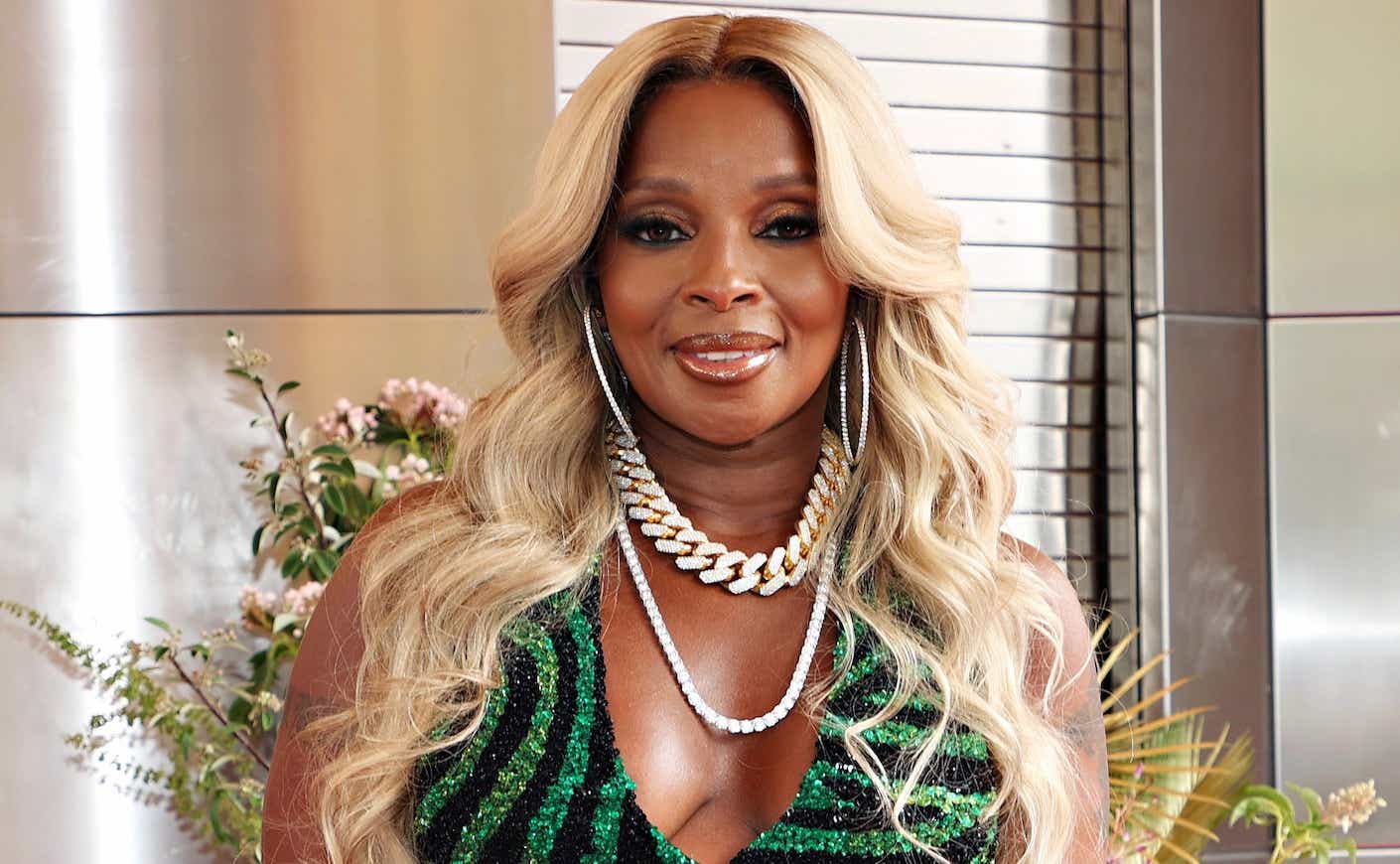Mary J. Blige is getting better with age. (And that’s for a woman who we thought couldn’t get any better, especially after she released the multi-platinum album The Breakthrough in 2005.) As proof, the R&B superstar booked the biggest stage on the planet: the Super Bowl Halftime Show, where she’ll perform alongside other legends like Snoop Dogg, Dr. Dre, and Eminem. But Blige says she wouldn’t have reached this milestone if she hadn’t started prioritizing her health about two decades ago.
“I wouldn't have a Super Bowl opportunity if I was not taking care of my health,” she tells KCM in a new interview. “I wouldn't be able to tell the story of my 20s, when I was suicidal. I didn't want to live — I didn't like myself. But when I began to love myself, I started loving myself from the inside. And that started with healthcare,” she says.
One aspect of health that’s particularly important to Blige is breast cancer: Her aunt died of breast cancer when the singer was in her 30s. That’s when Blige knew she had to start taking her wellness seriously.
Blige has been an advocate for breast cancer awareness since 2020, when she began working with the Black Women’s Health Imperative to raise awareness that breast cancer has a 40 percent higher mortality rate among Black women than white women. She’s now the spokeswoman for the P.O.W.E.R. of Sure campaign. Launched in 2020 by BWHI and Hologic, it provides educational resources for patients, examining common barriers to early screening and generating awareness of the importance of annual mammograms among Black women.
She was more than happy to get involved. “Knowledge is power,” says Blige, “And I’m at the forefront of my craft and what I do. If I can be a voice that heals broken hearts and helps people get through college and marriages, then I can absolutely be a loud voice when it comes to spreading awareness about the importance of mammograms. I'm a vessel and I can help, and I thank Hologic for coming to me, because it's having a real effect on our culture.”
The hardest part of processing her aunt’s death, she says, was the shock. “What was so sad is we didn't know she had cancer,” says Blige. “So she was in the hospital dying and she’d probably had it for a while. In the Black community, we don't speak about [illness]. And then nobody knows until we’re laid up in the hospital with two weeks to live. She was one of my favorite aunts. I hadn’t seen her in a long time, and she came to visit us, and right after that, she went back to Savannah and ended up in the hospital. Then we found out she had breast cancer. It affected me in a major way — I was very hurt.”
That led Blige to look inward and push her own health to the forefront. The singer, 51, says, “I really started taking care of myself in my 30s and 40s. And that started with going to get my mammograms, going to get physicals every year, taking vitamins. Which is all especially important now, with COVID.”
Blige says her approach to health shifted when she truly recognized her value. “I started to look at my career in a serious way in my 30s,” she says. “When I was in my 20s, I didn't care what happened to me. But when I got in my 30s, I realized that my life means something. Now I want to live and I want to live long. So I started going frequently to the doctors. I needed to know: Am I sick? Do I have cancer? What's going on with my uterus? What's going on with my body? I began to want to heal.”
Now, says Blige, “Everybody's like, ‘Oh, Mary, you look better than ever.’ And that’s because I take care of myself now on the inside, not just the outside.”
So, when you see Blige take the stage this February and wonder how it’s possible that the singer hasn’t aged, now you know why. “We all need energy,” she says. “We need to be strong, we have to be healthy. I can't work, or make a living, or do anything for anyone else if I'm not healthy. Our health is our wealth.”









